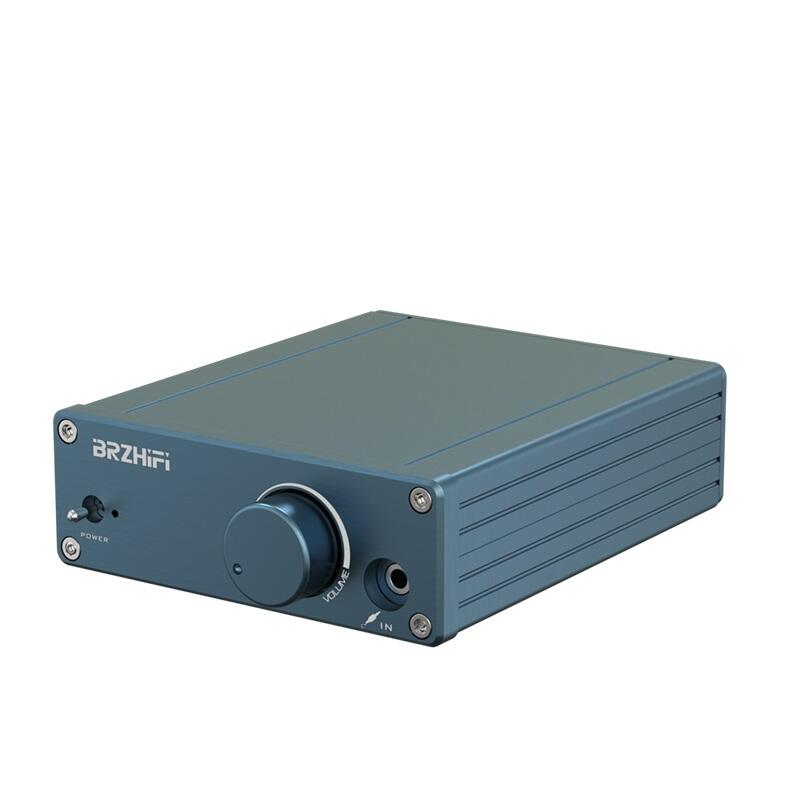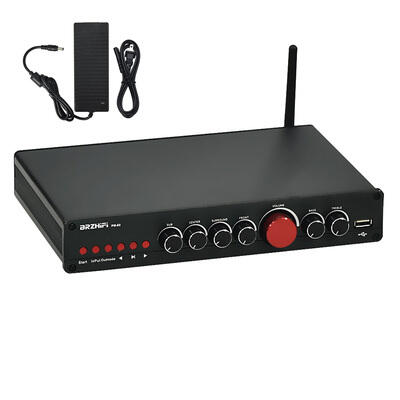The Evolution of Audio Excellence in the Digital Age
The world of audio amplification has undergone a remarkable transformation over the past decades. As technology continues to advance, digital amplifier systems have emerged as the cornerstone of modern sound reproduction. These sophisticated devices have revolutionized how we experience music, offering unprecedented clarity, efficiency, and control that their analog predecessors could only dream of achieving.
The journey from traditional analog systems to cutting-edge digital amplifier technology represents more than just a technical upgrade – it's a fundamental shift in how we approach sound reproduction. Today's digital amplifiers combine sophisticated processing power with refined engineering to deliver audio experiences that are both powerful and pristine.
Core Technologies Behind Digital Amplification
Class-D Architecture and Signal Processing
At the heart of modern digital amplifier technology lies the innovative Class-D architecture. Unlike traditional analog amplifiers that operate in a linear fashion, digital amplifiers employ sophisticated pulse-width modulation techniques to achieve remarkable efficiency levels often exceeding 90%. This high-efficiency design not only reduces power consumption but also minimizes heat generation, allowing for more compact and reliable amplification systems.
Advanced digital signal processing (DSP) capabilities further enhance the performance of these systems. Digital amplifiers can implement complex algorithms for real-time audio enhancement, including dynamic range compression, equalization, and phase correction. These processing features ensure optimal sound quality across various listening environments and volume levels.
Digital-to-Analog Conversion Excellence
The conversion process from digital to analog signals is crucial in maintaining audio fidelity. Modern digital amplifiers incorporate high-resolution DAC chips capable of processing audio at sampling rates up to 192kHz with 24-bit depth or higher. This level of precision ensures that every nuance of the original recording is preserved and reproduced with exceptional accuracy.
The implementation of sophisticated error correction and jitter reduction techniques further contributes to the superior performance of digital amplification systems. These technologies work together to minimize unwanted artifacts and maintain the purity of the audio signal throughout the amplification chain.

Performance Advantages of Digital Amplification
Superior Sound Quality and Precision
Digital amplifiers excel in delivering consistent, accurate sound reproduction across the entire frequency spectrum. The precise nature of digital signal processing allows for exceptional control over the audio output, resulting in lower distortion levels and improved channel separation compared to traditional analog designs.
The ability to maintain consistent performance regardless of volume level is another significant advantage of digital amplifier technology. Whether operating at whisper-quiet levels or full output, these systems maintain their sonic character and accuracy, ensuring an optimal listening experience in any scenario.
Energy Efficiency and Environmental Impact
The high efficiency of digital amplifier designs translates directly into reduced power consumption and heat generation. This efficiency not only leads to lower operating costs but also contributes to environmental sustainability through reduced energy usage. The compact size and lighter weight of digital amplifiers also mean less material usage in manufacturing and lower transportation-related environmental impact.
Modern digital amplifiers can achieve power efficiency ratings that were previously thought impossible, making them ideal for both home audio applications and large-scale professional installations where energy consumption is a significant consideration.
Integration and Connectivity Features
Network and Wireless Capabilities
Today's digital amplifiers often include advanced networking capabilities that extend their functionality beyond simple audio amplification. Built-in Wi-Fi and Bluetooth connectivity enable seamless integration with streaming services, mobile devices, and home automation systems. This connectivity also facilitates remote control and monitoring capabilities, allowing users to adjust settings and monitor performance from their smartphones or tablets.
The implementation of various digital audio protocols ensures compatibility with a wide range of source devices and formats. Whether streaming high-resolution audio files or connecting to legacy analog sources, digital amplifiers provide the flexibility needed in modern audio systems.
Smart Home Integration and Control
The integration of digital amplifiers into smart home ecosystems has opened new possibilities for automated control and customization. Voice control capabilities, scheduled operation, and scene-based automation are now common features in many digital amplification systems. These smart features allow users to create personalized listening experiences that adapt to different times of day or activities.
Advanced control interfaces and mobile apps provide intuitive access to the amplifier's various functions and settings. Users can easily adjust audio parameters, manage input sources, and create custom presets without needing extensive technical knowledge.
Frequently Asked Questions
How does a digital amplifier differ from an analog amplifier?
Digital amplifiers process audio signals in the digital domain using sophisticated algorithms and pulse-width modulation, while analog amplifiers work with continuous voltage signals. This digital approach results in higher efficiency, better control over audio parameters, and typically produces less heat than traditional analog designs.
What are the benefits of choosing a digital amplifier for home audio?
Digital amplifiers offer numerous advantages including superior energy efficiency, compact size, precise audio control through DSP, integration with modern streaming services, and smart home compatibility. They also typically provide cleaner sound reproduction with lower distortion levels compared to analog alternatives.
Are digital amplifiers suitable for all types of speakers?
Most modern digital amplifiers are designed to work effectively with a wide range of speakers. Their advanced processing capabilities often include speaker optimization features that can adapt the output to match specific speaker characteristics, ensuring optimal performance regardless of the speaker type being used.

